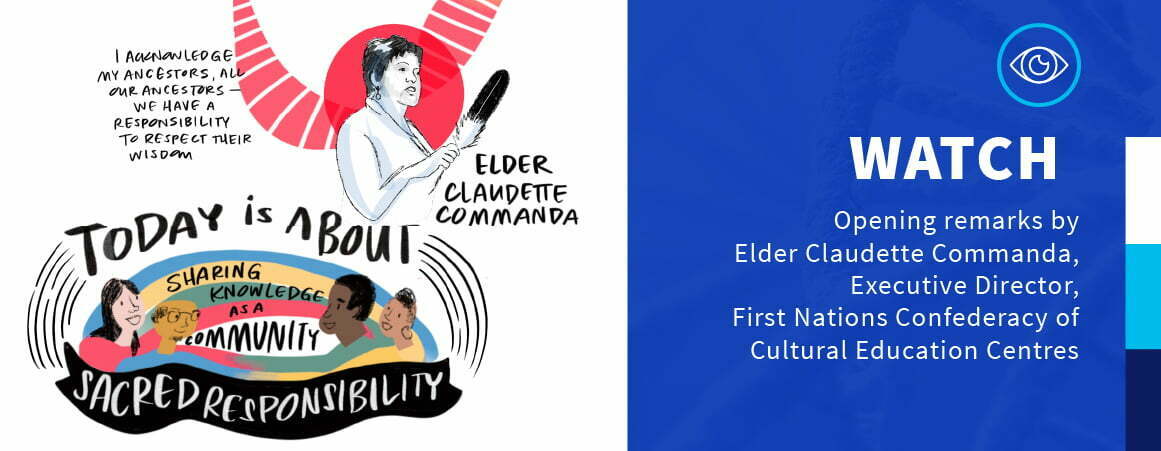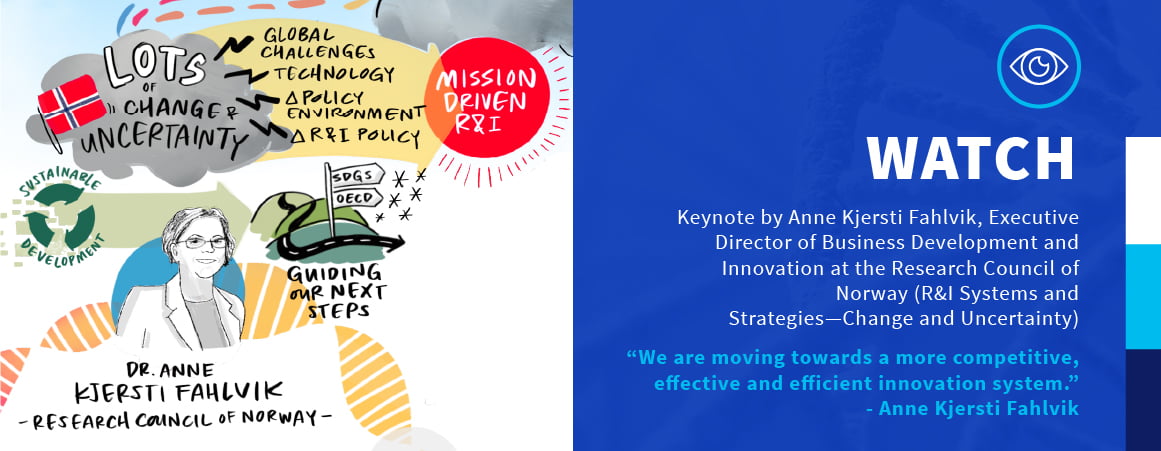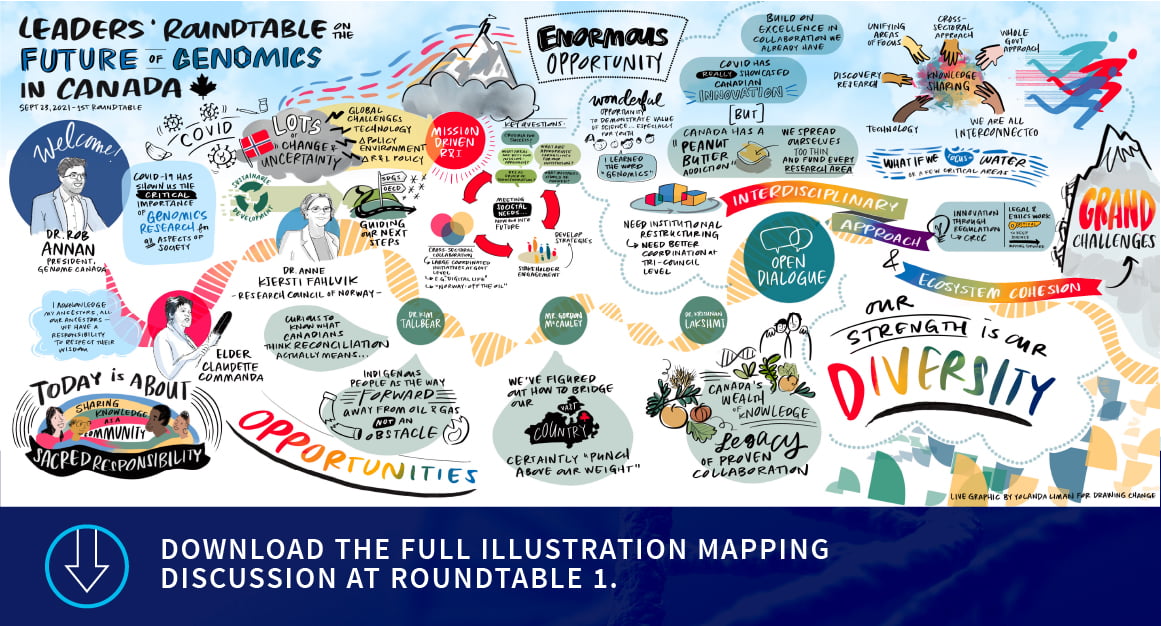Genome Canada hosts first leaders’ roundtable on the future of genomics in Canada (Sept. 23, 2021)
Genome Canada’s virtual roundtable series (Sept. 23, Oct. 5, Oct. 21) is convening Canada’s genomics research community, global experts and key partners in the national genomics ecosystem with a shared interest in shaping Genome Canada’s—and the country’s—strategic directions for impact in genomics. This series kicks off a broader dialogue on the future of genomics in Canada.
The first roundtable explored how national research and innovation strategies and ecosystems support innovation and impact—with a focus on how genomics and associated areas of research can help Canada tackle some of today’s biggest challenges.
Framing the discussion
Amid rapid and transformational advances in the biosciences and biotechnology, Canada has a pivotal opportunity to harness its genomics potential to improve lives, drive economic growth and tackle some of today’s biggest challenges. In this context, roundtable participants reflected on how well the challenges and opportunities within the Canadian context align with the structure and focus required for a successful research and innovation ecosystem.
Roundtable 1 discussion focused on three key questions:
- How can Canada incorporate specific learning from other national research and innovation strategies, and what are the lessons for a mission-driven strategy around genomics? What are our strengths and where are there gaps?
- How can we ensure we both strengthen Canada’s global standing and competitive advantage and deliver on societal and economic impacts for complex problems?
- How can a national research and innovation strategy ensure it meets the needs of all communities and delivers on equity, diversity, inclusion and Indigenous engagement imperatives?



Keynote address
Anne Kjersti Fahlvik, Executive Director of Business Development and Innovation at the Research Council of Norway (RCN), delivered a keynote address to spark the day’s discussion. The RCN is the national funding agency for research and innovation in Norway and has recently rethought its approach to connecting research and innovation to deliver high impacts across five strategic areas specifically linked to societal challenges for Norway and beyond:
- Seas and oceans
- Climate, the environment, and clean energy
- Public sector renewal and better public services
- Enabling industrial technologies
- Societal security and social cohesion in a globalized world
Within these five areas, the RCN has identified 20 missions that are achievable with effective connections across the research and innovation sectors: an approach that can serve as an example to Genome Canada as we look to drive genomics-enabled missions to meet national and global challenges and help build and drive a Pan-Canadian Genomics Strategy.
Dr. Fahlvik provided an overview of Norway’s Long-term plan for research and higher education 2019-2028—designed to enhance competitiveness and innovation capacity, tackle major societal challenges and develop academic and research communities of outstanding quality.

Roundtable respondents
Kicking off discussion with insights on the Canadian research and innovation context:
Open dialogue – Key insights
The importance of building collaborative ecosystems for impactful, mission-driven research and innovation was a focus of the roundtable open dialogue session. Dive into other discussion highlights below. The rich discussion brought to light these key insights on the future of genomics in Canada:
- Harnessing the power of genomics through cross-agency, cross-sectoral and interdisciplinary approaches is essential to tackling the complex and overlapping challenges facing us today.
- COVID-19 has brought genomics awareness and literacy to Canadians like never before. We need to capitalize on this.
- Knowledge mobilization will be imperative to impact-focused national strategies for genomics research and innovation.
- Developing and strengthening mechanisms for coordination across federal funding agencies is a critical success factor.
- We are in a community of knowledge strengthened by our collaborations and connected by our responsibility to society and the environment.
- Now is the time to define and focus collaborations on the “grand challenges” that can be tackled through genomics.
- Canada’s research enterprise continues to punch above its weight but risks being be spread too thin. We need to make strategic choices and double down on our world-leading genomics strengths.
- Centering Indigenous communities, knowledge and expertise is imperative to successful research and innovation strategies.
- Research and innovation strategies aimed at supporting Indigenous engagement and leadership remain siloed. Breaking down those siloes is essential.
- Focus on ethical, environmental, economic, legal and social impacts of genomics is a key facilitator of research impact. Policy leadership on Genomics in Society is mission critical.

Explore the new virtual hub for Genome Canada’s dialogue on the future of genomics in Canada.

